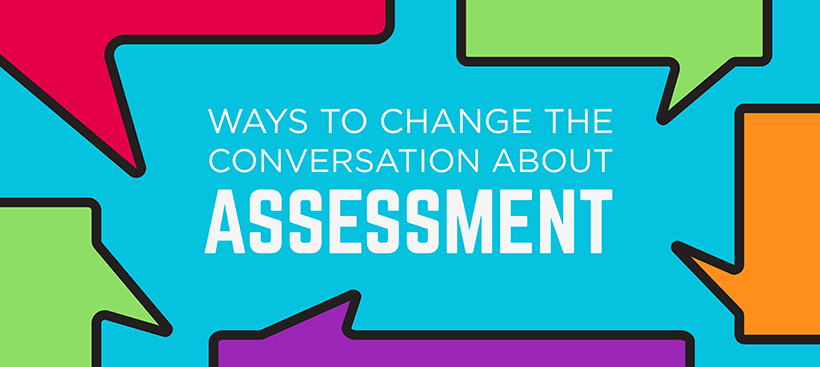This blog was written by Kathryn Mitchell Pierce and the NCTE Standing Committee on Literacy Assessment.
The start of the new school year is the perfect time to take the first steps toward building a collaborative relationship with families. Sending letters home or inviting students and families to stop by the school prior to the first day can help families feel welcome. Home visits take teachers out into the communities where their students live and signal a willingness to learn from families.
Fall home/school conferences provide another opportunity to build relationships with students’ families. These conferences can offer families insights into what and how their child is learning and the ways teachers assess student literacy learning. When families know and understand school literacy practices, they can help us build connections to out-of-school literacies.
Too often, these conferences are one-way conversations with teachers telling families how to read and interpret complex standardized assessment data. Of course, according to the NCTE Standards for the Assessment of Reading and Writing, all stakeholders need to be involved in the assessment process, so it is important for families to understand standardized test results. However, this doesn’t mean that families need to become experts in educational assessments. Instead, teachers are called on to seek and act on the information families have about their children, and on the community literacy practices they value.
How can we shift toward more collaborative assessment conversations? How can we create spaces where families engage in assessment conversations from their own areas of expertise?
The following invitations may be useful in building a more collaborative relationship with families around literacy assessment.
- Invite families or members of the community to orient you to the places and practices that are important to the students and families in the school. Katie, a high school teacher, knew that the students in her new school reflected cultural experiences very different from her own. She asked one of the families to lead her on a tour of the surrounding community. This “community mapping” experience helped Katie get to know the literacy practices that she could build upon during the school year. Further, Katie positioned herself as a learner and signaled that understanding family and community experiences is an important part of learning how to support students at school.
- Invite families to share evidence of literacy learning observed outside of school. Tonya, a third-grade teacher, invited parents to respond to the question, “What evidence would you accept that your child is growing as a reader?” She was surprised to hear answers that were similar to her own. Parents wanted to hear their child sharing information at home about books they were reading at school. They wanted to see their child occasionally choose reading during unscheduled times, and to include a book when packing for camp or vacation.
- Invite families to offer feedback on what and how their children are learning at school. Nora, a sixth-grade teacher, invites families to join their children at school at the end of a powerful book study. Students and families tour culminating projects and then engage in small group discussions around a picture book with a theme similar to the book students studied in school. Families hear their children engaging in these book-related discussions and can draw their own conclusions about their children’s growth. Hearing the discussions and seeing the culminating projects helps families understand the data Nora uses in assessing their children’s literacy learning.
Perhaps the most important first step toward building a collaborative relationship with families is to invite families to join us in exploring the ways we might work together. Schools and families share a commitment to support student literacy learning and each offers a different and valuable perspective on the ways we assess what and how we are doing.
For more information about these and other examples about collaborating with families see Going Public with Assessment: A Community Practice Approach (NCTE, 2018) by Kathryn Mitchell Pierce and Rosario Ordoñez-Jasis, as well as other titles in the Assessment strand of the Principles in Practice imprint.
NCTE Standing Committee on Literacy Assessment
Peggy O’Neill, Chair
Scott Filkins
Josh Flores
Bobbie Kabuto
Becky McCraw
Kathryn Mitchell Pierce
Elisa Waingort
Kathleen Blake Yancey

